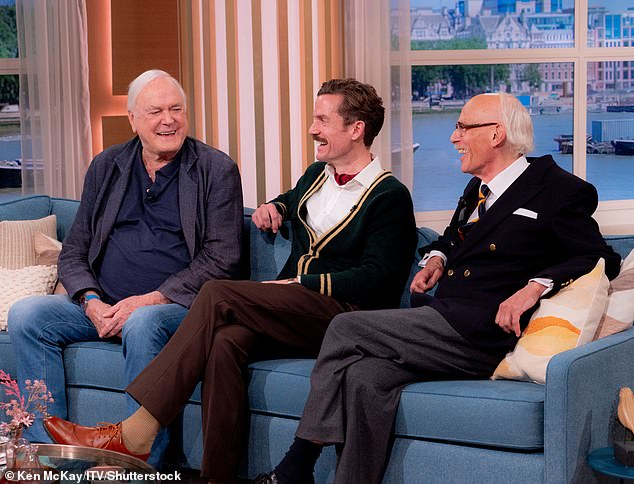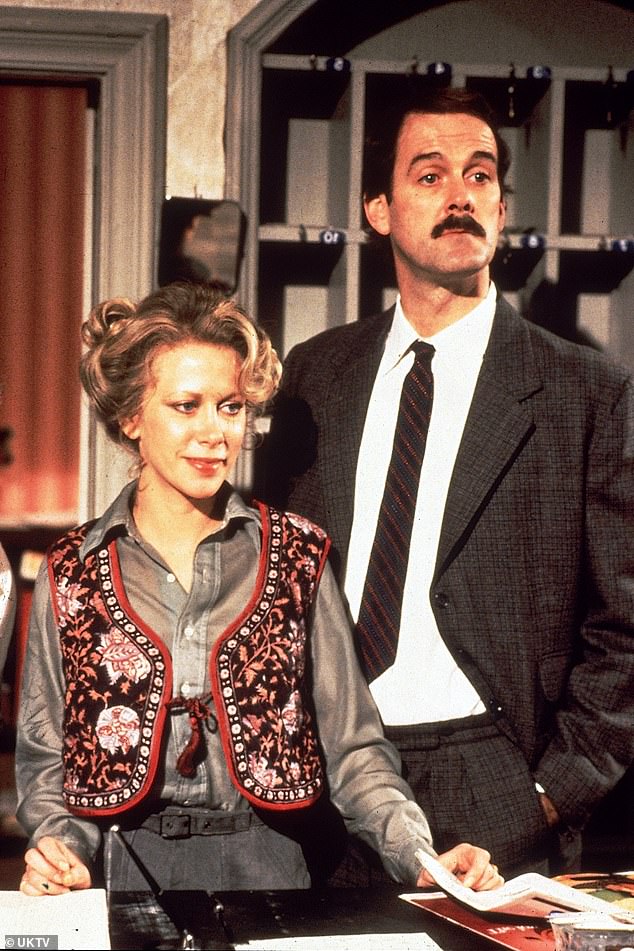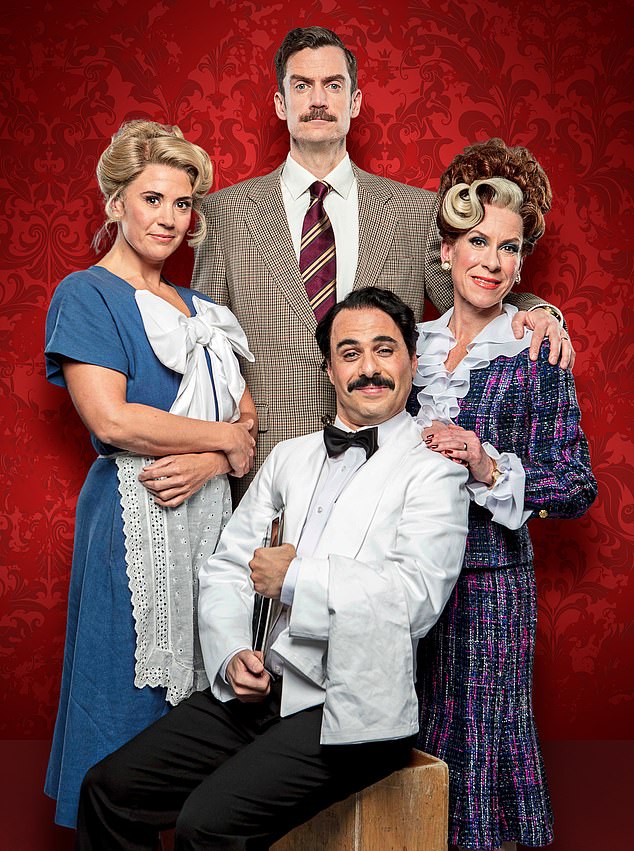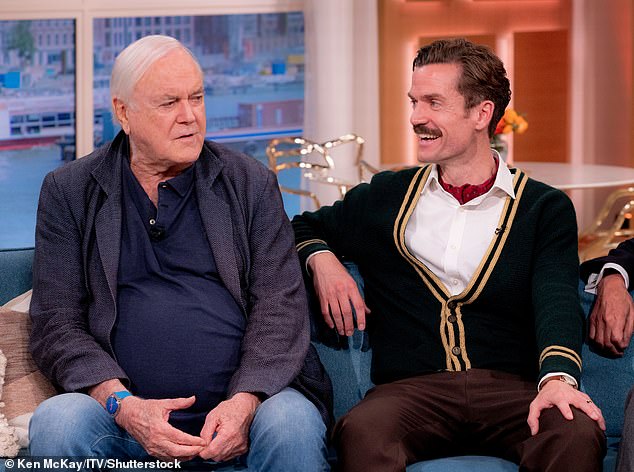John Cleese says Fawlty Towers stage show auditions were ‘so awful’ in playful interview after admitting he agreed to West End revival for the pay cheque
John Cleese joked that he was “very worried” about the success of the Fawlty Towers show because the auditions were “so awful”.
Although initially skeptical about reprising the iconic show, having previously turned down a musical and a TV show, the writer finally accepted an offer in 2015.
John, 84, appeared on This Morning on Friday, alongside actors Adam Jackson-Smith, who plays John’s role as Basil, and Paul Nicholas, who plays The Major.
John joked to presenters Dermot O’Leary and Alison Hammond: ‘I was really worried because the auditions had been so awful.
“I was disappointed with the rehearsal. Somehow we fooled the critics, because they’re not that good, those guys.”
John Cleese joked that he was ‘very worried’ about the success of the Fawlty Towers stage show because the auditions were ‘so awful’

John, 84, appeared on This Morning on Friday alongside actors Adam Jackson-Smith (centre), who plays John’s role as Basil, and Paul Nicholas (right) who plays The Major
Asked about his performance on the show, Adam said: ‘It’s amazing. From the very first preview we’ve had this incredible reaction from the audience. It was amazing to see an audience laughing with 700 other people.’
John added: ‘There’s something special about it. It’s not often you go to the theatre these days and you’re in an audience of people who are standing there laughing.
“When you look out at the audience and see them swaying back and forth, it’s an amazing feeling.”
This comes after John admitted he agreed to do the West End production of Fawlty Towers because of the financial security it would give him.
In a candid interview, John revealed that he does it for the money, so he no longer has to fly economy class.
He told The times: ‘But this is about me getting some savings so I can get a place in the sun. Because I have a problem with the British weather.
‘And when there is a crisis, you can throw money at it. That’s the best thing about money.
“The next step is to have enough to not have to fly commercially. I’m 6’3″ and I really hate flying.”

John co-wrote BBC Two’s Fawlty Towers – which aired for two seasons from 1975 to 1979 – with his ex-wife Connie Booth, 83 (both pictured in the show)

Asked about his performance in the show, Adam said: ‘It’s amazing. From the very first preview we’ve had this incredible reaction from the audience’ (West End cast pictured)
The reactions come after it was announced last year that the actor is writing a new television series set in the Caribbean. The series will follow Basil’s daughter, who has worked in the hotel industry her entire life, who gets a new job and enlists her father’s help.
He is also working on a musical and a non-musical version of Monty Python’s Life of Brian, plus another comedy film about cannibalism.
John wrote Fawlty Towers on BBC Two, which aired for two seasons from 1975 to 1979, with his ex-wife Connie Booth, 83.
The 12-episode sitcom is based on a real-life hotel owner, Donald Sinclair, who ran the Gleneagles Hotel in Torquay. The couple became fascinated by his incredibly rude behaviour.
John was married to Connie, 83, from 1968 to 1978 after they met on the comedy circuit while studying drama in New York.
The couple co-wrote and starred opposite each other in both series of Fawlty Towers, with Connie playing the role of chambermaid Polly Sherman. However, they divorced before the second season was completed and aired.

It comes after John admitted he agreed to the West End production of Fawlty Towers because of the financial security it would bring him
In 2020, the BBC removed an episode of Fawlty Towers from UKTV due to “racial insults”.
In the book The Germans, Cleese’s hotelier angers a German family by constantly referring to the Nazis.
Despite the controversy, John confirmed that the new West End production of the classic 1970s sitcom will include the scene in which a delusional Fawlty, suffering from a head injury, constantly brings up World War II.
It marks 50 years since the first show was first recorded at the BBC studios in December 1974.
